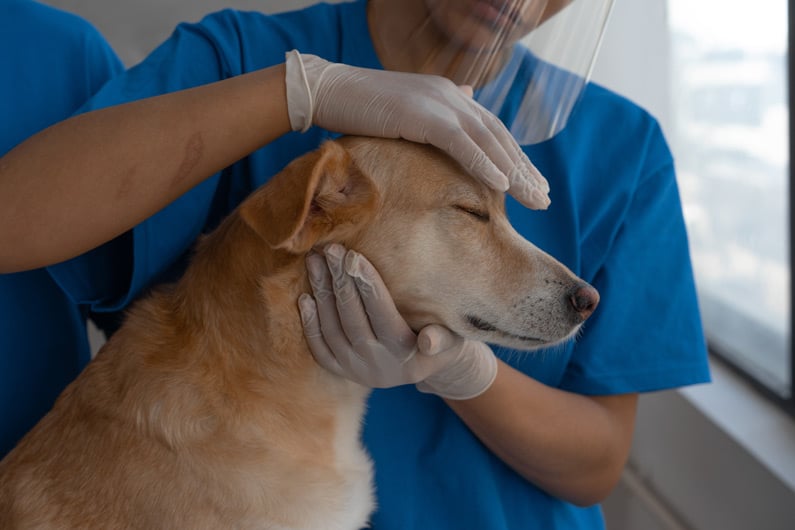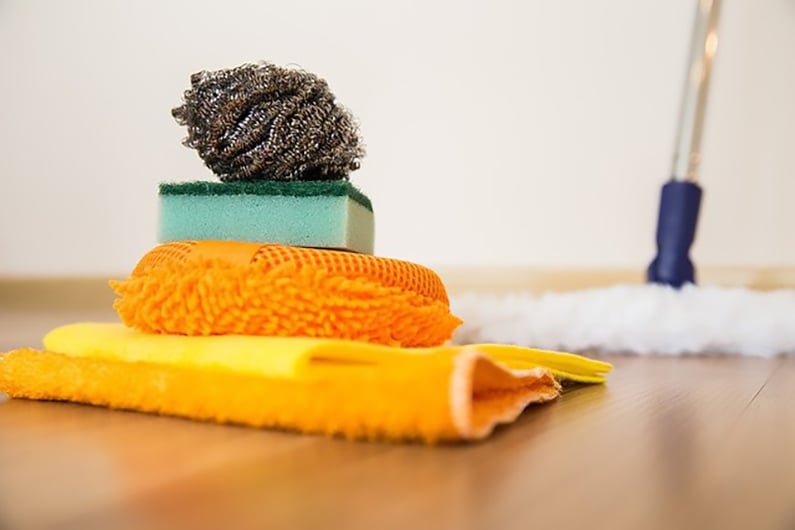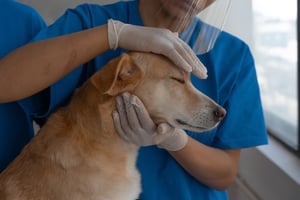
Kennel cough is a breeder’s worst nightmare, and rightfully so.
While this respiratory infection is generally non-lethal, immunocompromised dogs, pregnant and nursing females, and puppies can develop other serious infections from it.
Worse still is the fact that this highly contagious disease can spread like wildfire. Before you know it, the entire pack will be hacking, gasping, honking, gagging, and even choking. And this can go on for up to three weeks— that’s a long time for your pooch to not be able to breathe properly.
While kennel cough is treatable, prevention is always better than cure— especially if you’re a breeder.
In order to take appropriate preventative measures, though, you first need to understand what kennel cough is and how it spreads.
What Is Kennel Cough?

Veteran and novice dog breeders alike know what a nuisance kennel cough can be. It is the most common upper respiratory infection which can affect dogs of all ages. However, it is most severe in puppies under six months old and immunocompromised dogs.
Kennel cough is the canine equivalent of the common cold. It is caused by a variety of pathogens, including various bacteria and viruses, leading to persistent dry coughing. The coughing can sometimes sound like your dog is trying to gasp for air.
Most dogs that develop this disease recover within three weeks, without any medical intervention. Although, in serious cases, kennel cough can develop into pneumonia, which is much more difficult to treat.
How Does Kennel Cough Spread?

Kennel cough is a highly contagious disease. As soon as one dog catches it, the infection spreads like wildfire— exactly like the common cold.
Just like the common cold, your dog can catch kennel cough simply by breathing the same air as an infected dog. Hence, this airborne disease becomes almost impossible to avoid.
Infectious hotspot places are where dogs are within 15 feet of each other. This could include places like kennels, dog shows, the groomer’s, dog parks, and even vet clinics.
Moreover, kennel cough can spread by coughing, barking, sharing toys and water bowls, and even in group feeding.
Surprisingly, even you can unknowingly transmit the disease to your dogs. Even though the pathogens responsible for kennel cough don’t infect humans, they can certainly hitch a ride with you until they find their way to your dogs.
Hence, there simply isn’t a definitive way to prevent kennel cough.
Does this mean that you need to keep your dogs locked up from the rest of the world? Obviously not. Dogs of all ages need socialization, and you can’t (and shouldn’t) keep them locked up out of fear of them getting sick.
That being said, you should still take preventative measures to minimize the spread and severity of the disease, especially in group feeding.
6 Ways To Prevent Kennel Cough

Here are some of the most effective ways to prevent the spread of kennel cough among your pack.
1. Kennel Cough Vaccination

Vaccination is the most surefire way to minimize the spread and severity of kennel cough. Dr. Eric Ruhland, a veterinary professional, asserts that no vaccine is ever going to prevent a dog from getting sick, but it prevents them from shedding more and minimizes the length and severity of the disease.
In other words, the vaccine will greatly minimize the symptoms of kennel cough.
As soon as your puppy hits that 8-week mark, you should get it vaccinated against kennel cough. Keep in mind that the five-in-one vaccine does not include a vaccine against kennel cough, so you need to take care of that separately.
Moreover, this particular vaccine is not a one-and-done deal. Instead, you need to administer a booster shot every twelve months.
There are three types of vaccinations for kennel cough:
- Intranasal— this works quicker and is the only safe option for pregnant dogs.
- Injections— administered directly into your dog’s bloodstream
- Oral— similar to cough drops
2. Other Vaccinations

At the same time, you should also keep up to date with vaccinations for other diseases as well.
This is because kennel cough can itself be a symptom of other underlying diseases. Adenovirus, parainfluenza, bordetella bronchiseptica, influenza, and distemper are the most common diseases that lead to kennel cough.
If you know that there is an outbreak of, say, distemper in your area, then make sure your dog is up to date on its distemper vaccinations.
You should also be an active member of your local breeder and dog owner community so you can know whether there is any such outbreak and take appropriate action.
3. Only Trust Reputable Dog Facilities

You can’t keep your dogs isolated from the world, but you can try to make sure that they don’t enter any infectious hotspots.
In other words, do extensive research on any groomers and vets to ensure that they keep their facilities clean and disinfected.
4. Isolate Your Infected Dogs

Just because one of your dogs gets infected doesn’t mean all is lost. If you take action quickly enough, you can easily contain the infection and prevent it from spreading to the rest of the pack.
This means no more group feeding, playing, or walks.
Instead, you need to isolate patient zero, preferably in an incubator with a built-in humidifier. At the same time, try to wear gloves and other protective clothing while handling the infected dog.
This will also be a good time to double-check whether your other dogs are due for their vaccination. Believe it or not, a shot can still greatly contain and reduce the spread of kennel cough even when one of your dogs has become infected.
5. Keep Your Kennel Clean

The most common pathogen that transmits kennel cough is the Bordetella bronchiseptica bacteria. This bacteria can remain on all surfaces for up to 48 hours, which is more than enough time for your dog’s curious muzzles to catch the disease.
As such, you need to disinfect all surfaces in your house or kennel that either you or your dog comes into contact with.
Moreover, try to keep your kennel generally dust-free. This will prevent your dog’s airways from weakening, which can otherwise lead to more serious infections.
6. Fogging disinfectant

In addition to daily cleaning, disinfecting all surfaces is effective in keeping kennel cough at bay. This includes not only the area around the dogs, but also your surroundings as you care for them, since you may be the physical carrier of the germs in your contact with the dogs.
Now, when it comes to disinfecting surfaces, do you have the time to manually spray the disinfectant with a spray bottle every hour? If not, consider using a special disinfectant fogger.

A good disinfectant to use is hypochlorous acid water (also known as ECA), which is also used for wound care and itch treatment in dogs. Hypochlorous acid water is used in veterinary clinics and is widely recognized for its safety and effectiveness. In space spraying, even a low concentration of 80ppm is powerful enough to reduce bacteria.

This is not limited to dogs; for example, in a cattle barn, it was confirmed that the incidence of respiratory diseases including pneumonia was reduced from 80.6% to 31.3%. Tests on an agar medium using animal blood also confirmed that the number of bacteria was reduced to 1/100 after about one hour of fogging.

If you would like to know more about this system or would like to consider introducing it, please contact us.
Conclusion
Kennel cough is far from a fatal disease. Usually, dogs can recover from it without any medical intervention.
Nevertheless, it can be very uncomfortable for your dogs and cause difficulties in breathing. It can also drain their energy and affect their appetite.
The best preventative measure is to vaccinate your dog against kennel cough. Second to vaccination is regularly disinfecting your kennel.
This way, even if your dog catches the infection, it would be much less severe.



